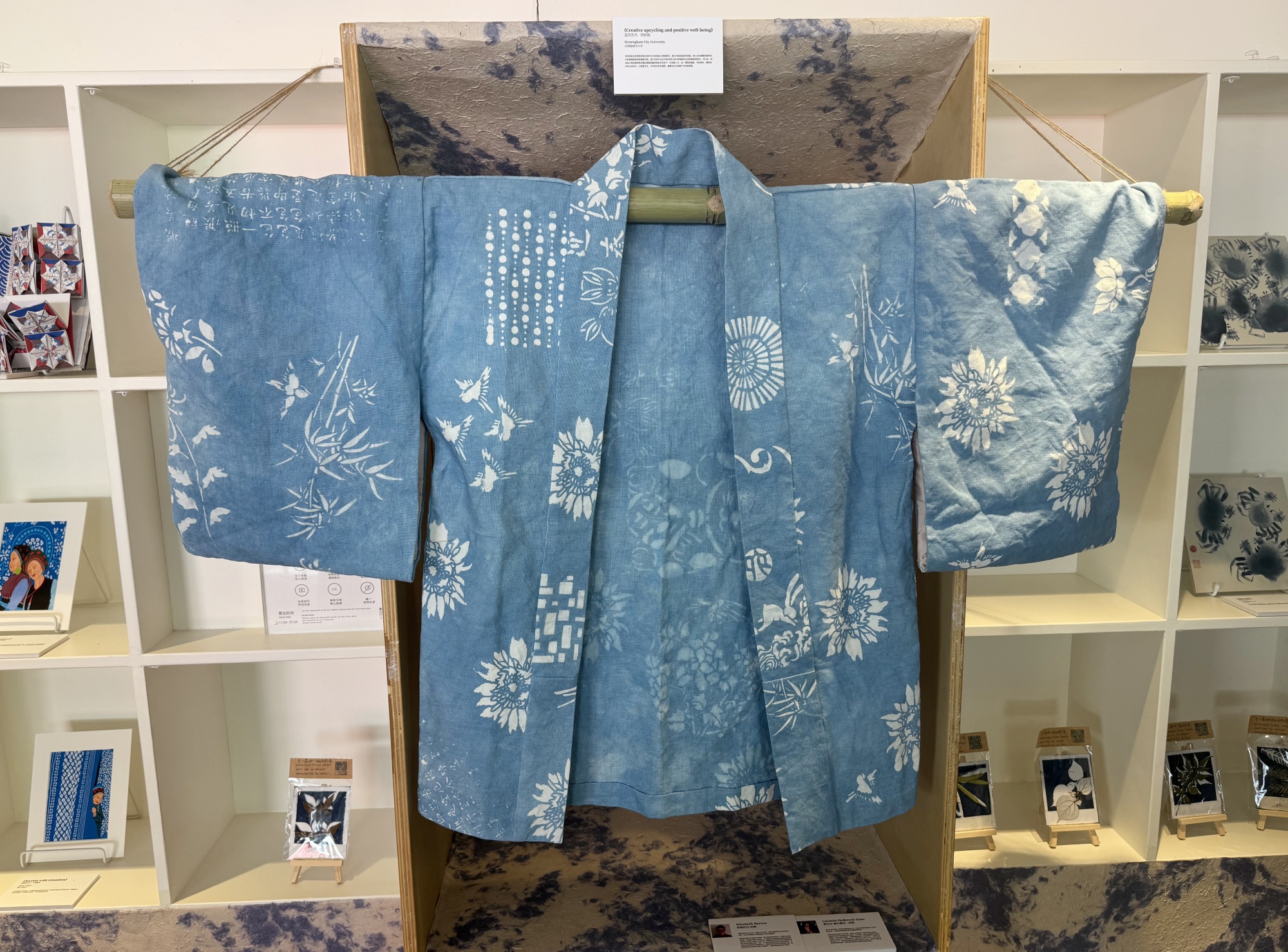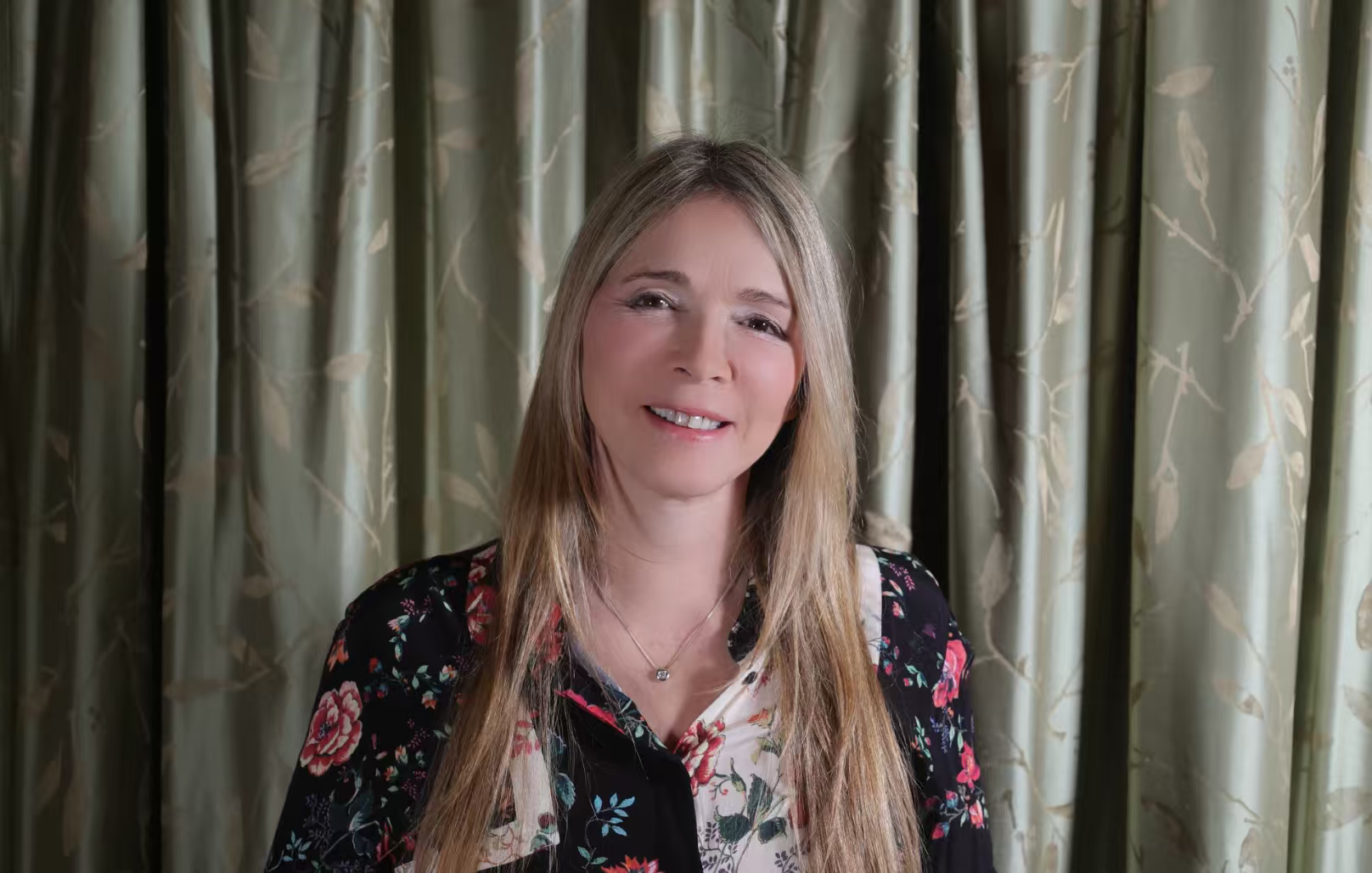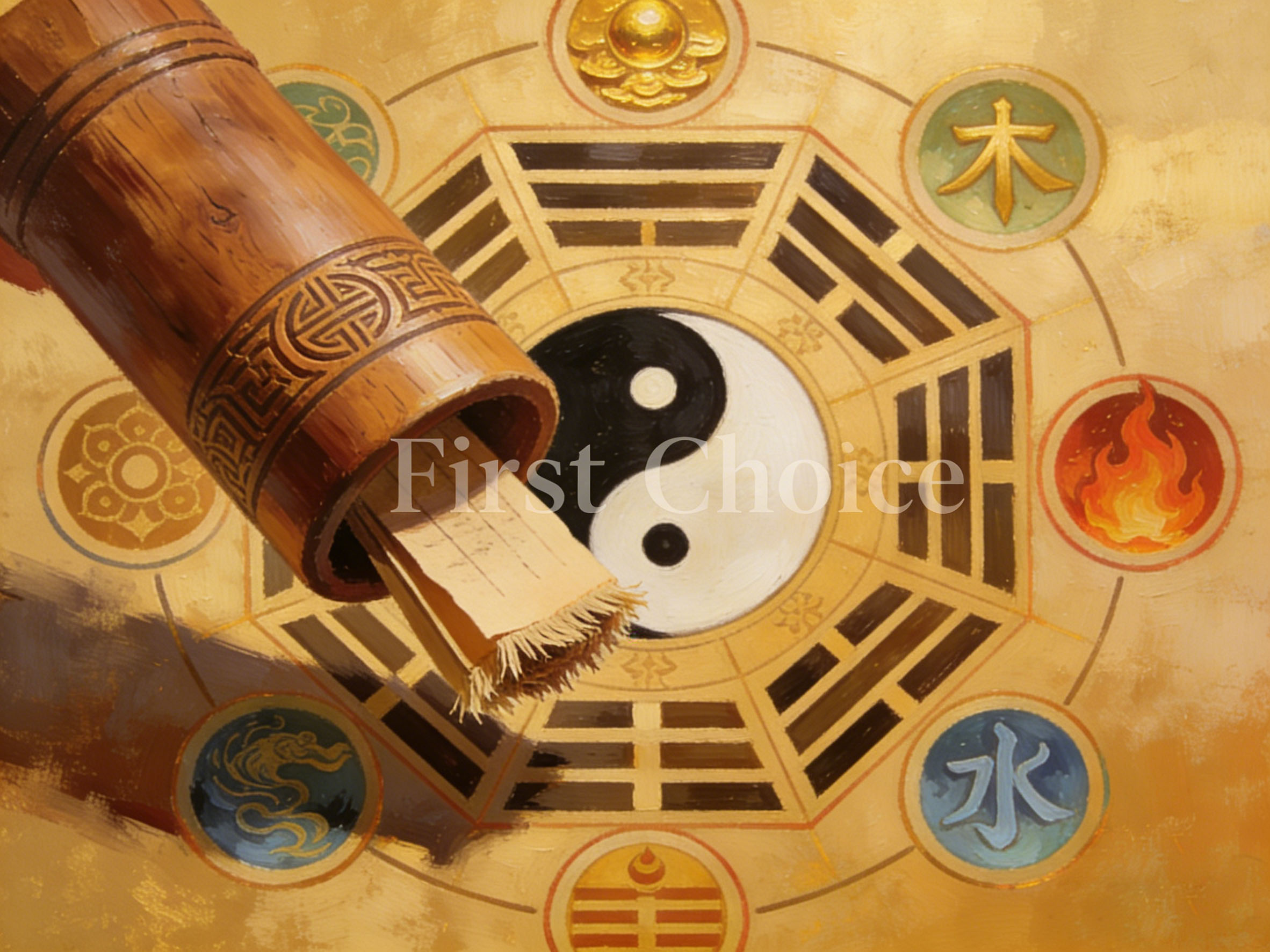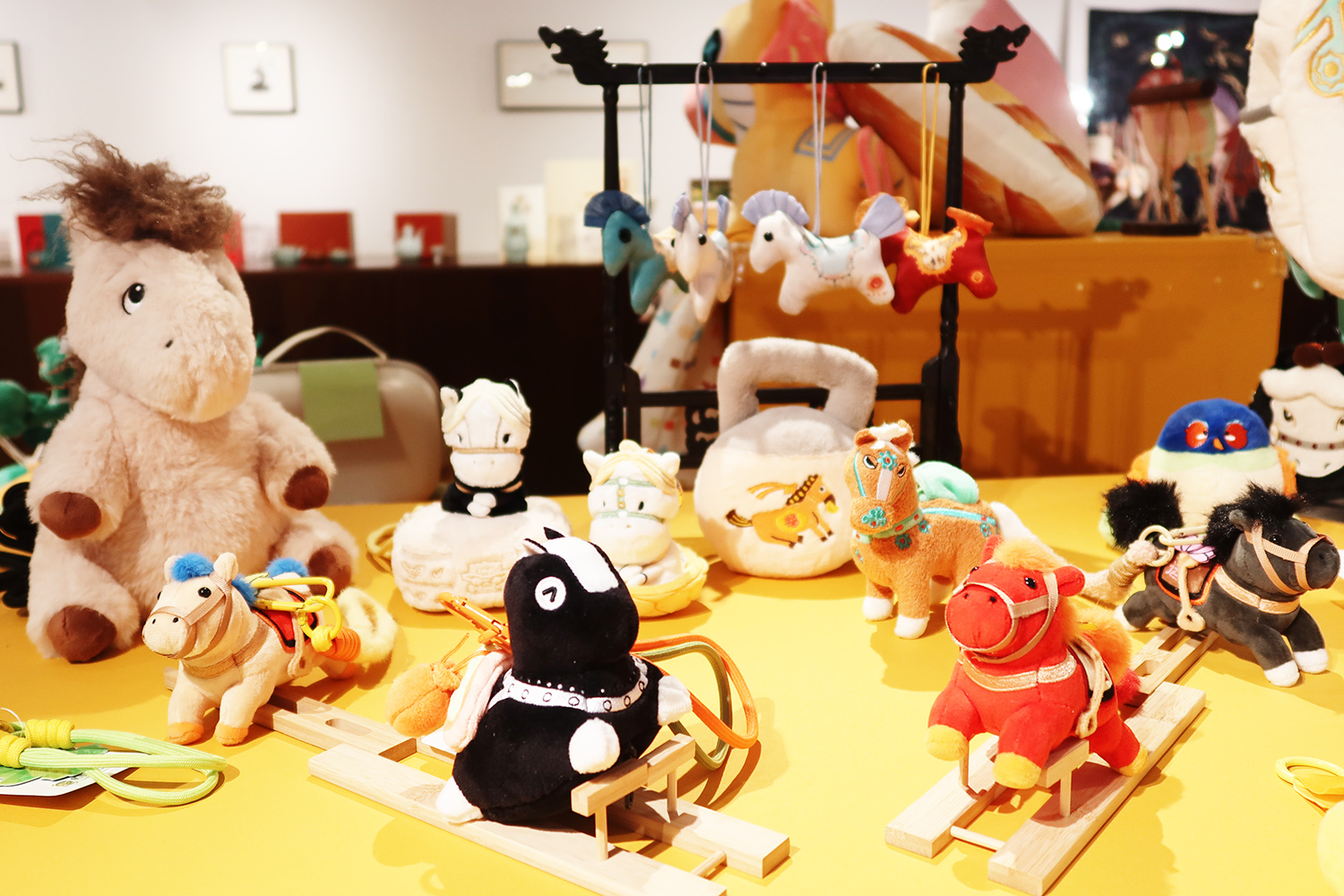“I share my stories with you, and you share your stories with me.” Yiran Duan, from Dali in Yunnan and founder of handcraft studio Yi Crafts, explained how teaching crafts is a bridge between cultures.
From the Bai ethnic minority group of Yunnan in China, she focuses on spreading the handicrafts and cultures of southwest China. After graduating from university in the UK in 2019, Yiran Duan founded her business Yi Crafts, which teaches traditional handicrafts from Yunnan. Returning to China in March, her studio in partnership with Liuran hosted an exhibition on China-UK Cultural Exchange Through Traditional Crafts.
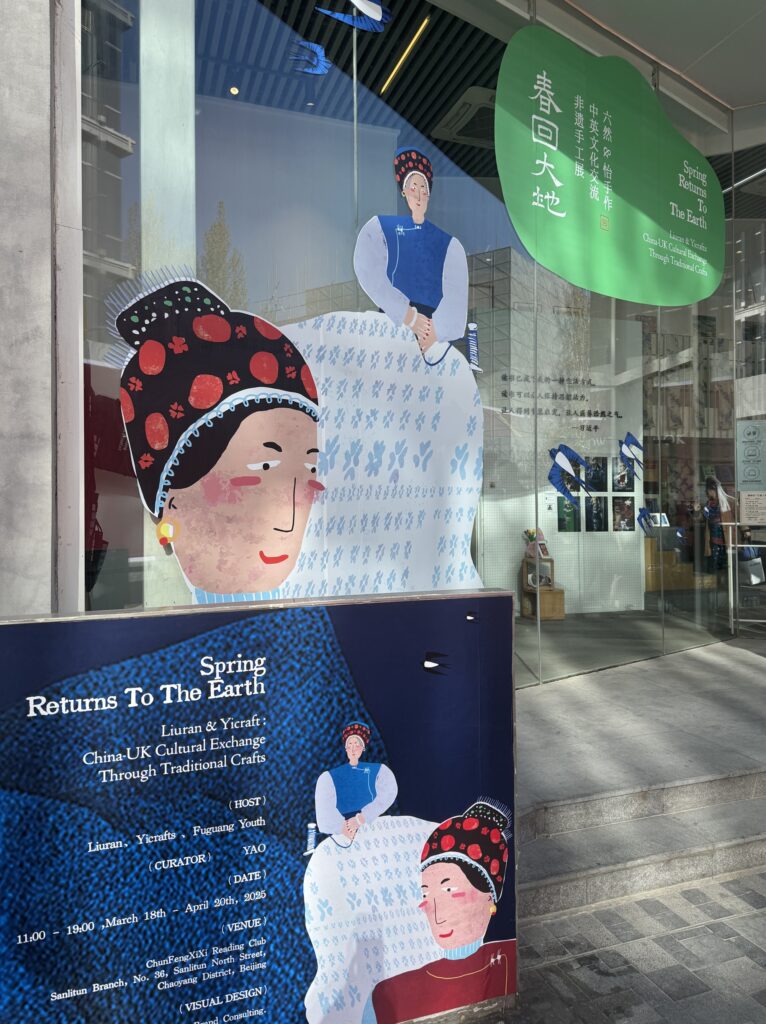
It’s not too late to start sharing Chinese traditional handcrafts
When first launching her studio, she received support from her university, London’s Royal Central School of Speech and Drama, the British Library, and the community. They welcomed and supported an ethnic minority women, to spread her voice in the UK.
However, not long after launching the COVID-19 pandemic came. She had to move her studio online. “A crisis is also an opportunity,” Yiran said, “at that time, everyone had time to study how to make a handcraft at home. Then, my customer base has expanded to the world.”
While an opportunity, teaching online is not the same as speaking face to face. So in 2022, Yiran set up her official studio in London. She said, “Exchanges are not merely verbal communication. A glance, a smile, or a touch can change one’s mind.”
Throughout her work, she has been able to share and educate about minority crafts. Zharan (扎染), also known as “Shibori” in Japanese, is one of the most popular handcrafts in Dali, China. “Many western people believe it is from Japan when they see shibori for the first time,” Yiran explains, as their cultural diffusion is earlier and more mature. “Nonetheless, it’s not too late for us to start sharing Chinese traditional handcrafts. I will tell them its origin is from southwest China. It has a tradition over thousands of years. Western people don’t know, so they want to study with you.”
At the same time, they talk about what Yiran doesn’t know. “I often say I’m not teaching, but sharing. People who come to the studio are from various fields, so teaching handcrafts is also a process of learning.”
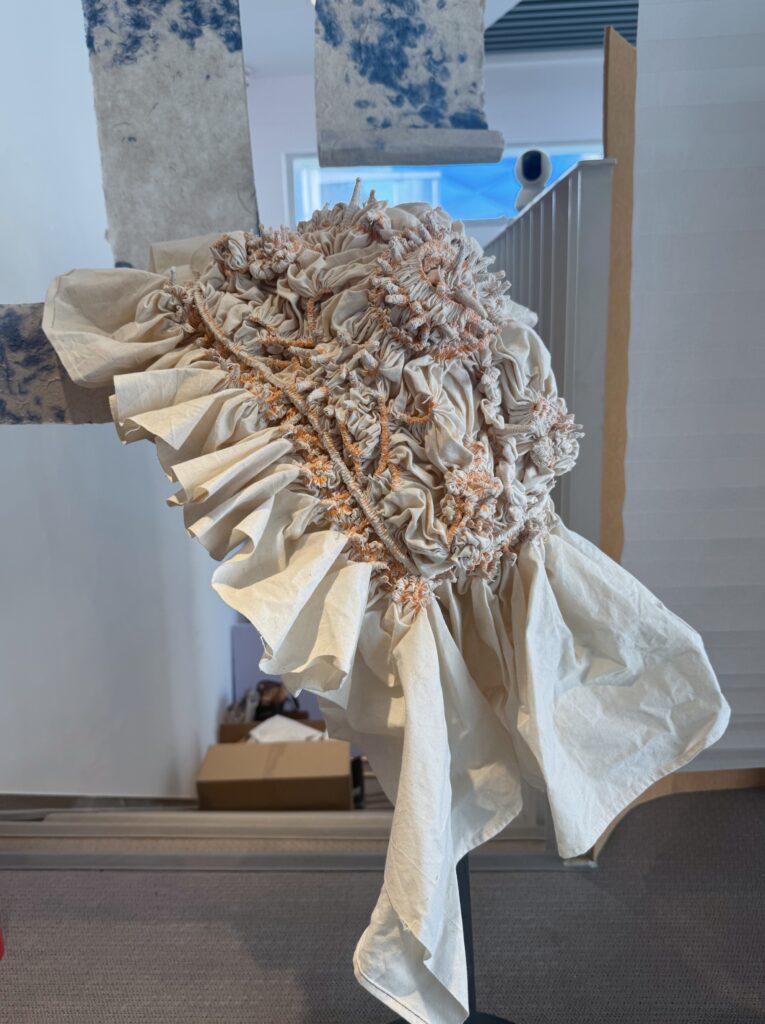
From Dali to the UK, and from the UK to Dali
“I have been spreading Dali’s culture to the UK for ten years. I hope to bring British culture back to Dali, Yunnan.” Explained Yiran, and in April 2024 she invited eight British people to Dali to have a cultural experience of her hometown.
She told an interesting story during the trip: when an old lady from the Bai ethnic minority group was teaching embroidery, she was singing a local song. Despite not knowing the meaning, one of the British visitors started singing along. Yiran then found that the lyrics of two songs were almost the same! “I realized, when they were making Zharan, they were feeling the Chinese culture. There was no need for me to tell them.” Yiran said.
Studying, working, and living in the UK also made Yiran realise, people usually pay too much attention to the differences in cultural exchanges, instead of looking at the similarities. “As human beings, we all like beautiful things and delicious food.”
Yiran liked herself as the bridge of cultural exchanges. She said that the bridge is no doubt important, but nothing is more important than the people on both sides. It is the best way of cultural exchange when the two sides are towards each other.
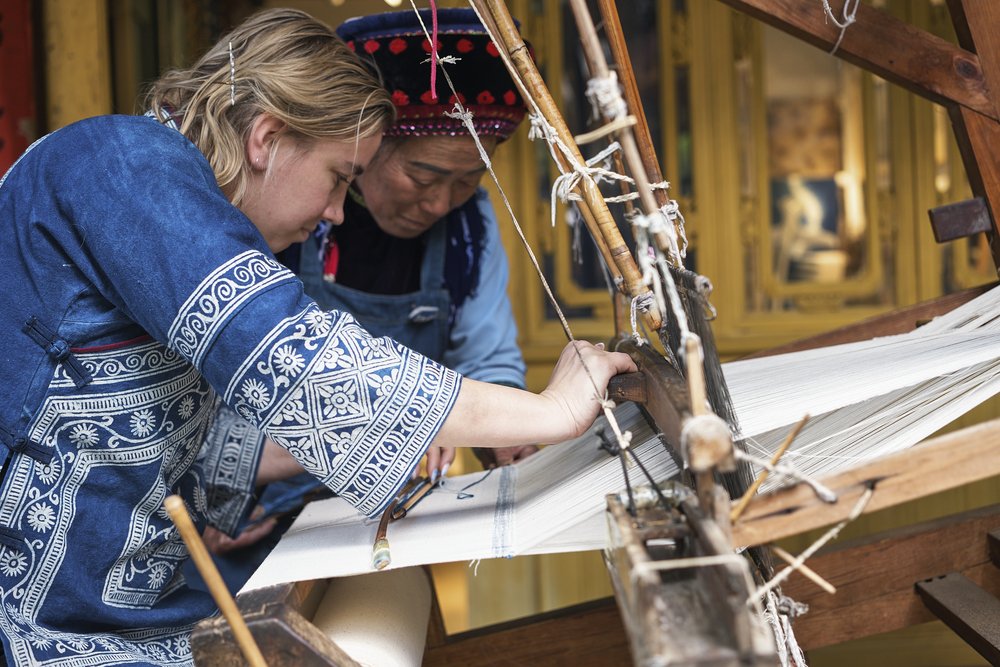
“I want them to see the different beauty of China”
Despite working hard on sharing the different cultures of China, there is still work to be done. She was once asked by one of her teachers, “Are you a native American?” due to her long hair kept in braids, typical of many Bai people. She answered, “No, I’m Chinese. I’m an ethnic minority in China.”
She thought this misunderstanding was from the stereotype of China in the west as one monolithic culture. “What they know about the Chinese culture is the dragon, or Qinghua porcelain, simple and single. Therefore, I want them to see the different beauty of China.”
When talking about cultural exchanges between China and the West, Yiran believes “never feel that no one is listening to your story”. Everyone owns their unique experience, which is worth being heard.
She shared her own story as an example. Her parents were English tour guides in the 1980s. She grew up in the “foreign street” of Dali, where foreign visitors and foreign food were gathered, and learned informal English on that street. “When I found my childhood was different from other Chinese students in London, I realized I was unique,” Yiran said.
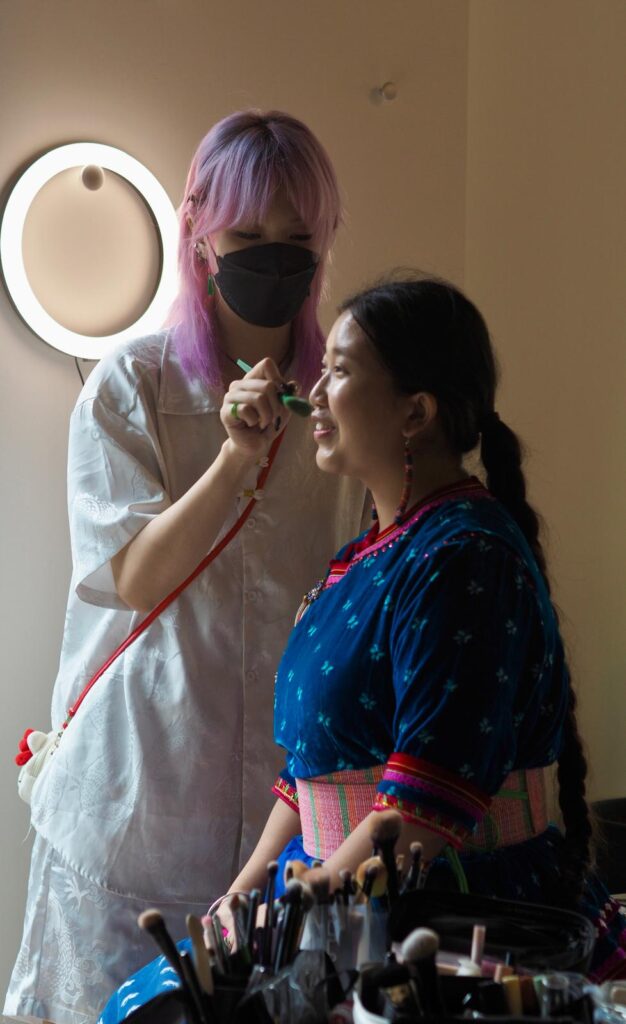
If you liked this article, why not read:【Beyond the Scene】Modern and Traditional Twist on White Snake

